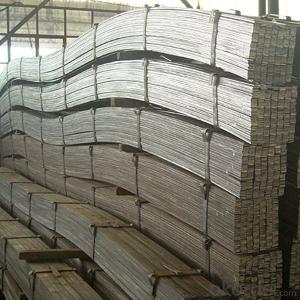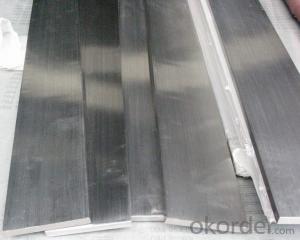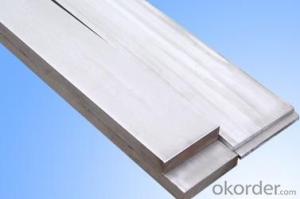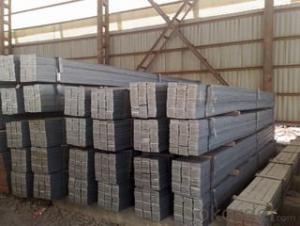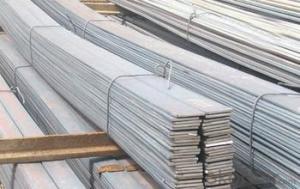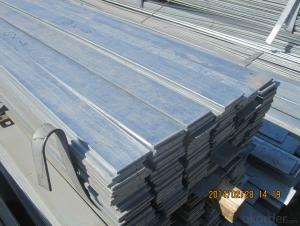Grade AISI D2 Hot Rolled Steel Flat Bar with Low Price
- Loading Port:
- Tianjin
- Payment Terms:
- TT OR LC
- Min Order Qty:
- 3 m.t.
- Supply Capability:
- 10000 m.t./month
OKorder Service Pledge
OKorder Financial Service
You Might Also Like
Item specifice
Grade AISI D2 Hot Rolled Steel Flat Bar with Low Price
Specification of Grade AISI D2 Hot Rolled Steel Flat Bar with Low Price
Grades | GB | DIN | AISI | JIS | OTHERS | |||||
Cr12Mo1V1 | 1.2379 | D2 | SKD11 | K110 | ||||||
X155CrVMo12-1 | ||||||||||
Chemical composition | C | Si | Mn | Cr | P | S | Mo | V | ||
1.50-1.60 | 0.10-0.40 | 0.15-0.45 | 11.50-12.50 | 0.03MAX | 0.03MAX | 0.60-0.80 | 0.90-1.10 | |||
Available | Round Bar | Diameter | Length | |||||||
10-380mm | 2000-5800mm | |||||||||
Flat Bar | Thickness | Width | Length | |||||||
12-500mm | 60-900mm | 2000-5800mm | ||||||||
Surface condition | Black surface/ Milled | |||||||||
Annealed hardness | HB250MAX | |||||||||
Characteristics | Very high resistance against abrasive and adhesive wear due to a high volume of hard carbides in the steel matrix moderate machinability good dimensional stability, toughness and through hardenability | |||||||||
Applications | cutting, punching, stamping tools | |||||||||
Shear blades | ||||||||||
Thread rolling dies | ||||||||||
Drawing and bending tools | ||||||||||
Flanging and straightening rolls | ||||||||||
Fine cutting tools | ||||||||||
Deep drawing tools | ||||||||||
Plastic mould for abrasive polymers | ||||||||||
Cold extrusion dies | ||||||||||
Drawing dies | ||||||||||
CNBM Introduction of Grade AISI D2 Hot Rolled Steel Flat Bar with Low Price
CNBM International Corporation is the most import and export platform of CNBM group(China National Building Material Group Corporation) ,which is a state-owned enterprise, ranked in 270th of Fortune Global 500 in 2015.
With its advantages, CNBM International are mainly concentrate on Cement, Glass, Iron and Steel, Ceramics industries and devotes herself for supplying high quality series of refractories as well as technical consultancies and logistics solution.
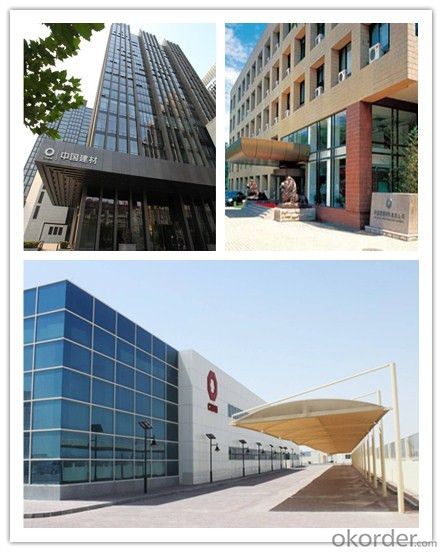
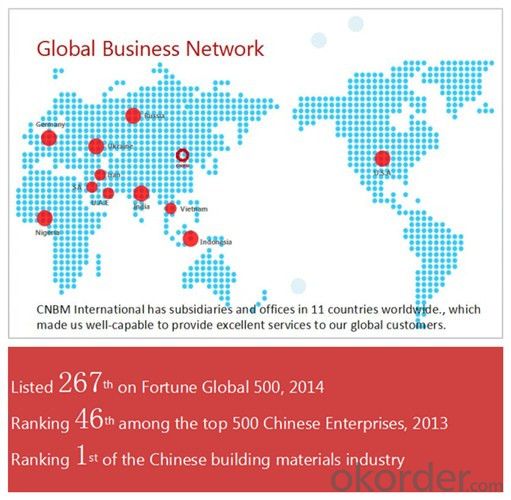
After-sale service |
|
Advantages
|
|
Packaging & Delivery of Grade AISI D2 Hot Rolled Steel Flat Bar with Low Price
Packaging Detail | Sea worthy packing /as per customer's packing instruction |
Delivery Detail | 15 ~ 40 days after receiving the deposit |
Products Show
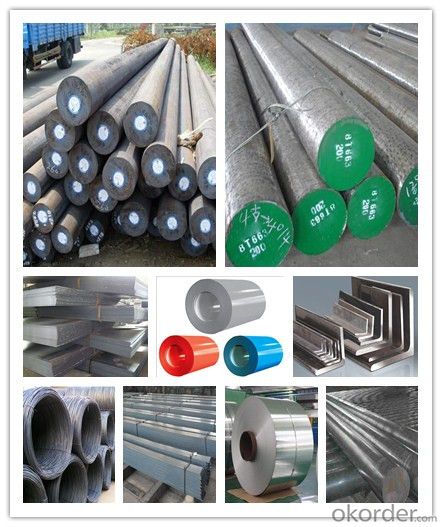
FAQ:
Are you a trading company or manufacturer? | Manufacturer |
What’s the MOQ? | 3 metric ton |
What’s your delivery time? | 15-35 days after downpayment received |
Do you Accept OEM service? | Yes |
what’s your delivery terms? | FOB/CFR/CIF |
What's the Payment Terms? | 30% as deposit,70% before shipment by T/T |
Western Union acceptable for small amount. | |
L/C acceptable for large amount. | |
Scrow ,Paybal,Alipay are also ok | |
Why choose us? | Chose happens because of quality, then price, We can give you both. Additionally, we can also offer professional products inquiry, products knowledge train (for agents), smooth goods delivery, excellent customer solution proposals. |
What's your available port of Shipment? | Main Port, China |
What’s your featured services? | Our service formula: good quality+ good price+ good service=customer's trust
|
Where are your Market? | Covering more than 160 countries in the world |
- Q:Can special steel be used in cryogenic applications?
- Yes, special steel can be used in cryogenic applications. Special steels, such as austenitic stainless steels like 304 or 316, are commonly used in cryogenic applications due to their excellent mechanical properties and resistance to low temperatures. These steels are able to maintain their strength, toughness, and ductility even at extremely low temperatures, making them suitable for use in cryogenic environments. Additionally, special steels can also exhibit good resistance to corrosion and thermal expansion, which are important factors to consider in cryogenic applications. Overall, special steel alloys are well-suited for use in cryogenic applications due to their unique combination of properties that enable them to withstand and perform in extremely cold conditions.
- Q:How does special steel resist oxidation at high temperatures?
- Special steel resists oxidation at high temperatures due to the presence of alloying elements such as chromium, aluminum, and silicon. These elements form a protective layer of oxides on the surface of the steel, which acts as a barrier against further oxidation. This layer is stable even at high temperatures, preventing the steel from reacting with oxygen in the environment and thus maintaining its structural integrity.
- Q:What are the challenges in heat treatment of special steel?
- Some challenges in the heat treatment of special steel include achieving the desired hardness and strength without compromising other properties, such as toughness and corrosion resistance. Special steels often have complex compositions, which can make it difficult to accurately control the heat treatment process. Additionally, heat treatment of special steel can be time-consuming and costly due to the need for precise temperature and time control, as well as the potential for distortion or cracking during the heat treatment process.
- Q:How does special steel perform at high temperatures?
- Special steel is designed to maintain its strength and resistance to deformation even at high temperatures. It exhibits excellent heat resistance, high thermal conductivity, and retains its mechanical properties, making it ideal for applications that require stability and durability in extreme heat environments.
- Q:What are the different corrosion-resistant coatings for special steel?
- There are several different corrosion-resistant coatings available for special steel, each with their own unique properties and advantages. Some of the most common ones include: 1. Zinc Coating: Zinc coatings, such as galvanizing, are widely used to protect special steel from corrosion. The zinc layer acts as a sacrificial barrier, preventing the steel from coming into contact with corrosive elements. 2. Epoxy Coating: Epoxy coatings are a popular choice for corrosion protection due to their excellent adhesion, chemical resistance, and durability. They form a strong barrier that shields the special steel from moisture, chemicals, and other corrosive agents. 3. Polyurethane Coating: Polyurethane coatings provide exceptional resistance to abrasion, chemicals, and weathering. They are often used in harsh environments where the special steel is exposed to extreme conditions, such as offshore or marine applications. 4. Ceramic Coating: Ceramic coatings offer high-temperature resistance and excellent corrosion protection. They are commonly used in industries like aerospace and automotive, where the special steel needs to withstand extreme temperatures and corrosive environments. 5. Metal Coating: Metal coatings, such as nickel or chromium, are often applied to special steel to enhance its corrosion resistance. These coatings create a protective layer that prevents the steel from corroding by acting as a physical barrier. 6. Powder Coating: Powder coatings are applied electrostatically and then cured under heat, forming a hard and durable protective layer. They offer excellent corrosion resistance and can be customized in terms of color and texture. It is important to select the appropriate corrosion-resistant coating based on the specific requirements of the special steel and the environment in which it will be used. Factors such as temperature, exposure to chemicals or moisture, and the desired lifespan of the coating should all be considered when choosing the right coating.
- Q:Can special steel be used in the printing industry?
- Yes, special steel can be used in the printing industry. It is commonly used in the manufacturing of printing machinery, such as printing presses, due to its high strength, durability, and resistance to wear and tear. Special steel components can help enhance the precision, reliability, and efficiency of printing processes, resulting in improved print quality and productivity.
- Q:How does special steel resist oxidation?
- Special steel resists oxidation due to the presence of alloying elements, such as chromium, that form a protective layer of chromium oxide on the surface of the steel. This layer acts as a barrier, preventing oxygen from reaching the underlying steel and thus inhibiting the oxidation process.
- Q:How does silicon affect the characteristics of special steel?
- Silicon plays a crucial role in modifying the characteristics of special steel. When silicon is added to steel in controlled amounts, it enhances several important properties. Firstly, silicon improves the strength and hardness of steel, making it more durable and resistant to wear and tear. This is especially important in applications where the steel is subjected to high levels of stress or needs to withstand extreme conditions. Moreover, silicon also contributes to the heat resistance of special steel. It helps stabilize the steel's microstructure at elevated temperatures, which prevents the material from losing its strength and shape under heat exposure. This makes silicon-infused special steel highly suitable for use in high-temperature environments, such as in furnaces, power plants, and automotive engines. Additionally, silicon promotes the formation of a protective oxide layer on the surface of steel, which enhances its resistance to corrosion. This makes silicon-influenced special steel highly resistant to rust and other forms of degradation caused by exposure to moisture or chemicals. As a result, it is widely used in applications where corrosion resistance is critical, such as in marine environments or chemical processing equipment. Furthermore, silicon also improves the machinability of special steel, making it easier to shape and process. It enhances the steel's cutting and drilling properties, reducing tool wear and increasing production efficiency. This benefit is particularly valuable in manufacturing industries that rely on precise and efficient machining operations. In summary, the addition of silicon to special steel significantly impacts its characteristics. It enhances strength, hardness, heat resistance, corrosion resistance, and machinability, making silicon-influenced special steel highly versatile and well-suited for a wide range of demanding applications.
- Q:What are the applications of special steel in the electronics industry?
- Special steel has various applications in the electronics industry. It is commonly used to manufacture components such as connectors, springs, and contacts due to its high strength, corrosion resistance, and electrical conductivity. Additionally, special steel is employed in the production of magnetic cores for transformers and inductors, as it exhibits excellent magnetic properties. Its ability to withstand extreme temperatures and provide reliable performance makes it a preferred choice for electronics applications where durability and efficiency are crucial.
- Q:How does special steel contribute to the aerospace material weight reduction?
- Special steel contributes to aerospace material weight reduction through its unique properties and characteristics. Special steel alloys such as stainless steel, titanium alloys, and high-strength low-alloy steel offer superior strength-to-weight ratios, allowing for the construction of lightweight yet robust components and structures in aircraft. These steel alloys possess excellent mechanical properties, including high tensile strength, hardness, and corrosion resistance, which enables them to withstand extreme conditions and reduce the need for additional material reinforcement. By utilizing special steel, aerospace manufacturers can design and fabricate lighter aircraft, resulting in improved fuel efficiency, increased payload capacity, and enhanced overall performance.
1. Manufacturer Overview |
|
|---|---|
| Location | |
| Year Established | |
| Annual Output Value | |
| Main Markets | |
| Company Certifications | |
2. Manufacturer Certificates |
|
|---|---|
| a) Certification Name | |
| Range | |
| Reference | |
| Validity Period | |
3. Manufacturer Capability |
|
|---|---|
| a)Trade Capacity | |
| Nearest Port | |
| Export Percentage | |
| No.of Employees in Trade Department | |
| Language Spoken: | |
| b)Factory Information | |
| Factory Size: | |
| No. of Production Lines | |
| Contract Manufacturing | |
| Product Price Range | |
Send your message to us
Grade AISI D2 Hot Rolled Steel Flat Bar with Low Price
- Loading Port:
- Tianjin
- Payment Terms:
- TT OR LC
- Min Order Qty:
- 3 m.t.
- Supply Capability:
- 10000 m.t./month
OKorder Service Pledge
OKorder Financial Service
Similar products
New products
Hot products
Related keywords
